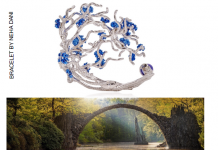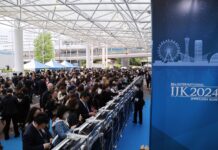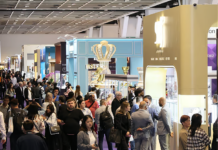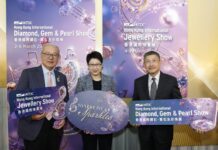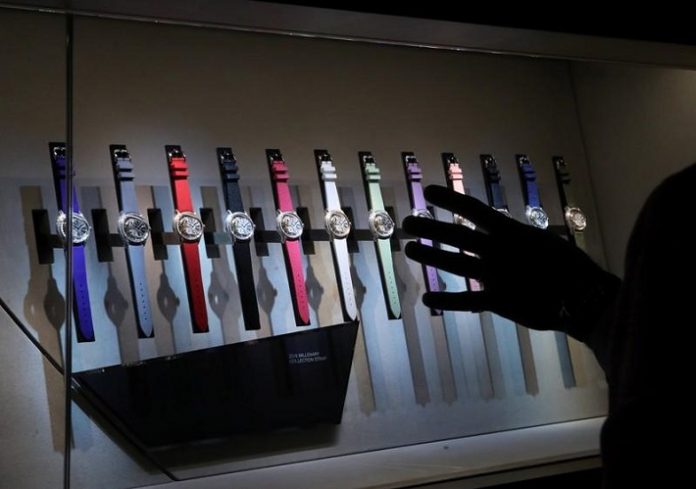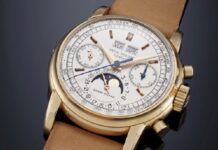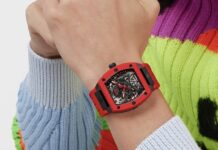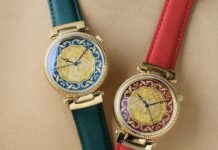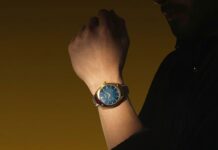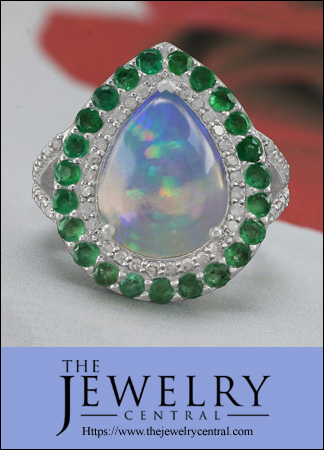Swiss watchmakers are starting to see signs of slowing spending from Chinese tourists, but are still banking on demand shifting to mainland China to fuel growth this year, several high-end brands said on Monday.
Investors are on edge over a softening economic backdrop in China, and weak Chinese trade data on Monday sent shares in luxury goods companies that rely heavily on Chinese customers tumbling.
Some brands like Parmigiani, owned by the Sandoz Family Foundation and which makes around 3,000 pieces a year, with average prices at 35,000 Swiss francs (£27,665), said they believed it was still a good time to invest in China.
“People are travelling less, but consuming more domestically so it is the right moment for us to strengthen our local presence (in China),” chief executive Davide Traxler told Reuters at the SIHH industry trade fair in Geneva, adding the label, in turnaround mode, was entering that market “10 years late”.
Parmigiani is repositioning itself at higher price points after trying to take a more accessible tack a few years ago.
Chinese customers make up over a third of spending on luxury goods worldwide, but a falling yuan and Chinese government measures like cuts in import taxes are pushing more of those shoppers to splurge domestically.
Business in Hong Kong lost steam in the last three months of 2018, Cartier owner Richemont reported on Friday, and others noted setbacks there and in other parts of Greater China, which includes Macau.
“We had growth everywhere last year, except for Greater China where we saw a dip in demand due to the trade war in October and November,” said Edouard Meylan, chief executive of independent Swiss label H. Moser & Cie.
“It has recovered since,” Meylan said. He added the brand had sold an unusual amount of “big-ticket” watches in December and January, but was still wary of nasty surprises.
“With the shutdown (in the U.S.), the trade war and Brexit, there is a lot of uncertainty at the moment.”
STILL GROWING
Manufacturers of luxury wares from handbags to fancy timepieces have so far played down the chances of a dramatic fallout from a U.S.- China trade stand-off, arguing that appetite from young, middle-class Chinese customers keen to wear branded goods was likely to hold up in the long term.
“We’ve noticed a small slowdown, but we’re still talking about a growth pattern,” said Ricardo Guadalupe, CEO of LVMH’s Hublot brand, which is not exhibiting its watches at the Richemont-dominated SIHH but at a hotel in downtown Geneva.
Young Chinese clients in their 20s and 30s boosted demand for Hublot watches in 2018, Guadalupe added.
“In principle, this dynamic is going to continue unless there is a real catastrophe in terms of the geopolitical relations between China and the United States,” he told Reuters.
Hublot, a stablemate of Tag Heuer and Zenith at LVMH, does not break out revenues.
But its sales in Greater China – which accounts for 13 percent of its revenues – rose by 60 percent last year, Guadalupe said, helped partly by Hublot’s status as a relatively new entrant in China, where it first invested 10 years ago.
That growth could be closer to 10 to 15 percent in 2019 as comparisons get tougher, he added, while Hublot is banking on its global comparable sales expanding by at least 6 to 7 percent after 16 percent growth in 2018.
NewsSource: Yahoo Finance
Disclaimer: This information has been collected through secondary research and TJM Media Pvt Ltd. is not responsible for any errors in the same.

